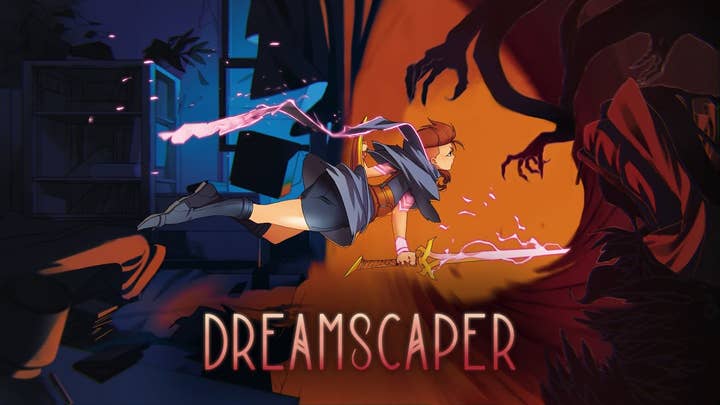Freedom Games joins indie publisher ranks at full speed
Fandom veterans founded their operation and published Dreamscaper into Early Access in a matter of weeks
Upstart indie publisher Freedom Games wasted no time in getting to work.
Speaking with GamesIndustry.biz, Freedom co-founders Donovan Duncan and Ben Robinson say they officially started the publishing outfit in the first week of August. Their first title, Afterburner Studios' Dreamscaper, launched into Early Access on Steam August 14.
Duncan says hitting the ground running like that "almost killed us."
"Ben and I stayed up for almost 48 hours during the launch," Duncan says. "We were an integral part of the launch, more than I think the average publisher would probably be able to contribute, monitoring every form of social media but really taking part at the ground level in things like Discord, Reddit, the community, chatting with those people live in real-time."
In some ways, that was obviously a less-than-ideal situation. For one thing, Duncan says he expects Freedom's future game launches to come after a two-to-four-month run-up of prep time.
"We want to be really the last-mile publisher that really helps drive awareness, drive excitement, and drive the community towards buying the game"
Donovan Duncan
At the same time, the plan was always for Freedom to step in and help developers closer to the end of the development cycle.
"We trust developers to build good games," Duncan says. "Frankly we trust them to do a lot of the bug fixing, QA stuff and even some of the translation stuff on their own. We want to be really the last-mile publisher that really helps drive awareness, drive excitement, and drive the community towards buying the game."
As for how Dreamscaper fared at launch with a quickly coordinated push from its publishing partner, Freedom notes the game was the No. 3 top-seller among Early Access games for three days, and had nearly 20,000 viewers on Twitch for the night of its launch. Duncan said Afterburner was satisfied enough to act as a reference for other studios, and an Afterburner representative confirmed they were happy with the work done so far.
While the publishing partnership came together in a hurry, the relationship between Duncan, Robinson, and Afterburner goes back a bit further.
Duncan and Robinson helped create the gaming Wiki site Gamepedia for Curse, Inc. in 2013. They stayed with the operation through Twitch's acquisition of Curse in 2016, as well as Fandom's acquisition of Curse Media sites in 2018. By the time they left Fandom in July, Duncan was the company's chief business officer and Robinson was VP of gaming.
Over that span, Duncan says Gamepedia was unusual for a media outlet in that it was regularly identifying games with potential and checking in with developers to see how they could work together. It was in that context that they first formed their relationship with Afterburner long before they left Fandom.
"We've had a front row seat to the success of games by managing the Gamepedia property... We were able to see in real-time what games became successful and what games didn't"
Ben Robinson
"We had much more of a co-relationship with the games [than traditional media outlets]," Duncan says. "We would provide feedback. We would source commentary from the community on our forums and through the various tools that we built. So we got good at giving that feedback to game developers and publishers, and advising them."
Robinson adds, "We've had a front row seat to the success of games by managing the Gamepedia property... We were able to see in real-time what games became successful and what games didn't from a traffic perspective on the wikis we hosted."
Years of watching how wikis performed from announcement to early access to release and seeing how communities reacted gave them an ability to identify which games will resonate with which audiences, Duncan says, or what player expectations around certain genres might be.
"We have the back-end experience to know the right places to place the game," Duncan says, adding that he's been working with gaming communities for more than two decades. "Knowing the influencers, the ways in which the game can be properly experienced, which point in time can different customers see that in different lifecycles and stages, early access vs. launch, etc. There's just some experiential knowledge that is gained through the course of that."
Part of that experiential knowledge is related to Duncan and Robinson's own gaming interests. Duncan says that between his own membership in a dozen Discord channels devoted to strategy games and Robinson's past as a Counter-Strike: Global Offensive pro player, the two of them understand their genres well enough to better inform their professional decisions when publishing those types of games.
Freedom Games has another differentiating point it can offer developers, in that it's owned by Freedom multichannel network of YouTube content creators.
The week before Dreamscaper launched, Freedom MCN announced its move into games publishing to members, promising to get them "early access to games on Steam never before released, and you will be able to cover them on your Youtube channel, Twitch livestream, Facebook Gaming pages before everybody else on YouTube, Twitch, or Facebook Gaming can."
As for how large an operation Freedom Games might become, Duncan says it is looking to hire a couple more people currently, but doesn't yet know just how many games it has the bandwidth to handle.
"That's something we've been debating internally as well, because we want to bring a slightly new approach to the space," Duncan says. "We really want to publish games we get, that we like, that we play, and that we understand. At least currently, we're more using the lens of, 'How many of those exist and come out, and which ones can we service the best?' rather than a specific number."


